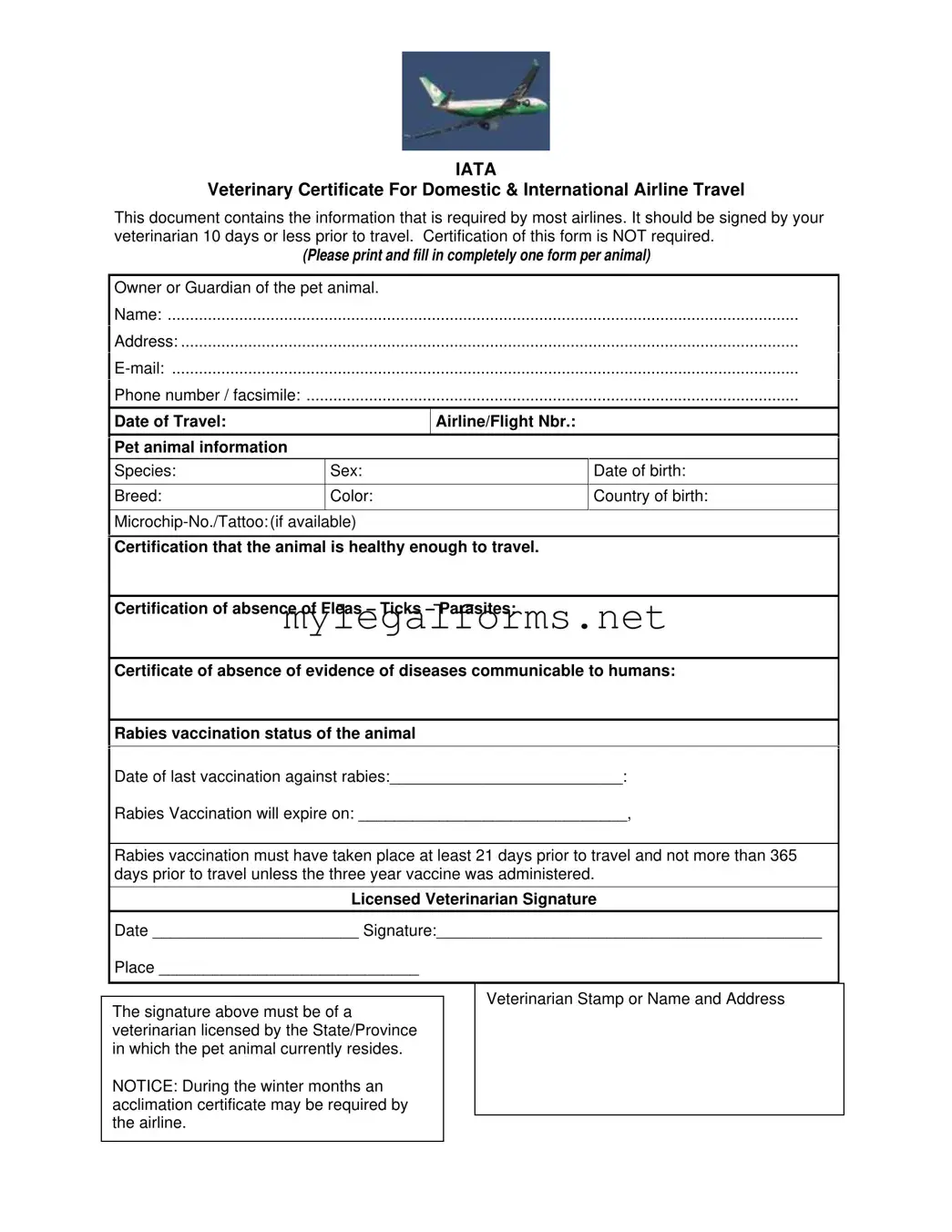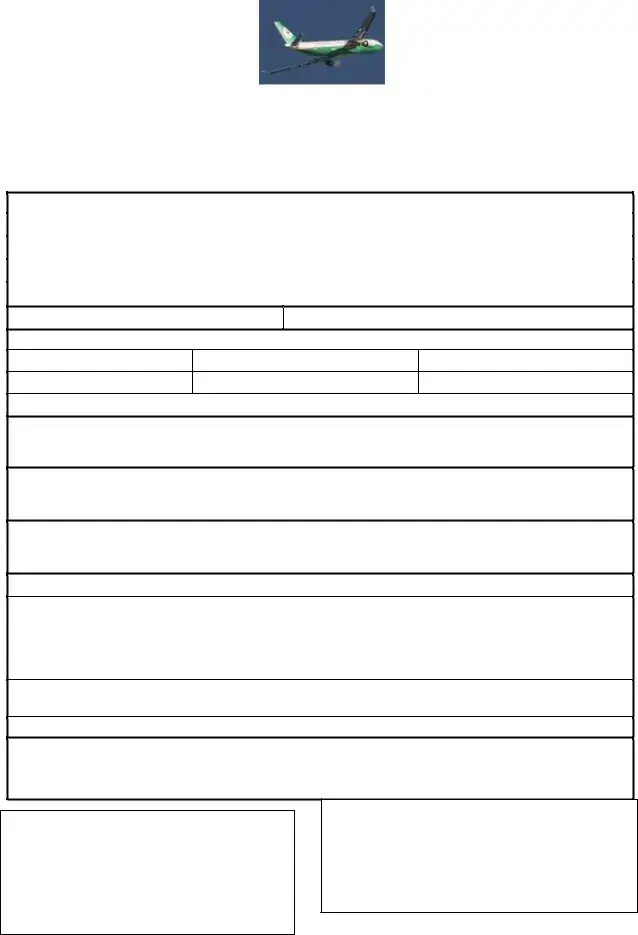Veterinary Certificate Travel Template
The Veterinary Certificate Travel form is an essential document for pet owners planning to travel with their animals, whether domestically or internationally. This form provides vital information required by most airlines, ensuring that pets are healthy and ready for travel. It must be signed by a licensed veterinarian within 10 days of the travel date to confirm the animal's health status and vaccination records.
Launch Veterinary Certificate Travel Editor

Veterinary Certificate Travel Template
Launch Veterinary Certificate Travel Editor

Launch Veterinary Certificate Travel Editor
or
⇓ PDF Form
Complete the form at your pace — fast
Finish your Veterinary Certificate Travel online and download the final version.
